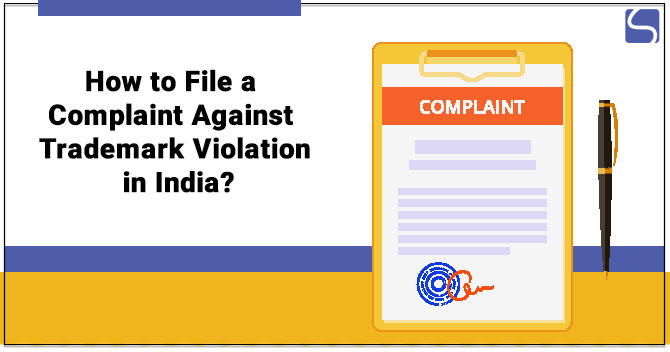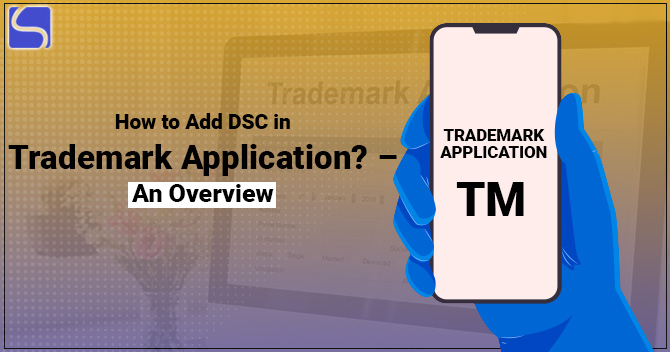How to File a Complaint Against Trademark Violation in India?

Karan Singh | Updated: May 12, 2021 | Category: Trademark
Nowadays, Trademark has become one of the simplest ways for customers to recognize the source and make the right decision. Trademark aids in recognition of brand value. Hence, it becomes essential for the Trademark proprietor to safeguard it from infringement/violation or misuse by others. Scroll down to check more information regarding the Trademark violation in India.
Table of Contents
What is the Meaning of Trademark Violation in India?
The Trade Marks Act, 1999 is the legislation that controls and regulates Trademarks in India. Trademarks Act, 1999[1], delivers rules that deal with the registration, penalties, and protection against Trademark violation or infringement. Trademark is an essential intellectual property across the world. Several organizations seek to safeguard such intellectual property.
The IPO (Indian Patent Office), regulated by the Controller General of Design, Patent, and Trademark, deals with Trademark protection in India. Trademark violation is a word used when there is any unofficial use of a mark that looks similar or deceptively similar to an already registered Trademark. Here, the deceptively similar means that when a person looks at the mark and gets confused about the origin or the products or services.
Trademark infringement or violation is a punishable offence, and Trademark Registration permits the owner to sue or file a complaint against a Trademark violation in India. It is so because a Trademark confers ownership right over the use of a Trademark.
What are the Different Types of Trademark Violation in India?
There are two different types of Trademark Violation in India, and you can check the same below:

- Direct Violation
- Indirect Violation
In direct violation, a mark is used by an individual who is not allowed by the owner of a registered Trademark. Such use of Trademark should be recognized as that of registered Trademark or deceptively similar to it for constituting direct violation/infringement. The unofficial or illegal use of the mark has to be for the propagation of goods or service that comes under the similar class of registered Trademark.
Unlike direct violation, there is no such provision in the Trademarks Act that deals with the indirect violation. But, it doesn’t mean that there is no monopoly for indirect violation. Indirect violation is further categorized into two different types Contributory and Vicarious Violation/Infringement.
When can you file a Trademark Violation Complaint?
Following are some cases where you may take action:
- When violation or infringement of your Trademark may confuse the customer’s mind;
- When the registered Trademark is used packaging/labelling without due approval;
- When a business uses your marks in a similar of deceptively similar way;
- When the registered Trademark is used in damaging, advertising, or is against the Trademark reputation;
- When you registered Trademark is violated by an individual with an aim to take undue benefit of the repute of your registered Trademark;
What is not a Trademark Violation?
If the closeness in images, words, etc., of the supposed violation, does not create any confusion to the ordinary buyers of products or goods, there is no violation of the Trademark. A Trademark used by truthful practices of the industry, not seeking to take any unfair benefit, also does not amount to Trademark violation in India.
What can you do if any Trademark Violation happens?
In case your registered Trademark has been violated by someone, then the Trademark owner may begin legal proceedings against the violator or infringer. It may be remembered that a Trademark that is not registered can be infringed or violated, and the owner of a Trademark cannot bring violation proceedings.
The owner of a Trademark can commence a legally allowed proceeding against the infringer. A criminal complaint can also be filed, and it may also be remembered that under the Trademarks Act, 1999, the offences are detectable, which means the police can register an FIR and sue offenders directly.
The jurisdiction to start the legal proceedings is also decided in line with the provisions imposed. Such a case can be filed in a court where the Trademark owner carries their business. Section 134 of the Trademarks Act defines the jurisdiction for filing suit.
What are the Remedies for Trademark Violation in India?
The Trademark owner can bring official proceedings against the infringer or violator. Following are two forms of remedies for violation:

- Civil Remedy: Such proceedings are commenced by the Trademark proprietor before the district court where the proprietor or owner lives. Civil remedies can be in the form of an order where an individual is stopped from doing a specific or task. It means abstaining an individual from illegal use of the mark. Civil proceedings can also be in the form of harms where the loss because of violation is recovered. The number of harms will be granted by the court once it considers the actual and the expected loss of the Trademark owner.
- Criminal Remedy: In this remedy, a complaint can be filed against the violator or infringer. It should be noted that both criminal and civil proceedings can be commenced simultaneously. A criminal action can be attained by:
- Complaint before a Magistrate: To commence prosecution under the penal provisions of the Trademarks Act, The Trademark owner can file a complaint prior to the magistrate and search for an order for investigation under the CrPc Section 156(3). He may also move an application under the same section.
- Compliant before the Police: The process and provision for filing a complaint before the police are furnished in Section 115(4) of the Act. The proposed official then looks for the opinion of the Trademark Registrar and commences an action.
Another essential thing to remember before filing a complaint is that the applicant must prove that the registered Trademark has been infringed or violated. Hence, the responsibility to verify the infringement lies on the applicant.
Sending a Letter before taking action to the alleged infringer
It is preferable to send a letter before starting violation proceedings to the supposed infringer. It is a beneficial option and can address the violation or infringement problem without restoring to litigation proceedings of Trademark violation in India.
Such a decision entirely based on the person situation. Following are some specified reasons why discontinue & cease letter may be sent:
- Such a letter can create the infringer to give up on their violating activities and stand by the demands of the correct owner;
- Such way of sending the letter indicates the readiness on the part of the owner to resolve the argument in a less conflicting manner;
- It also makes the infringer or violator aware of the fact that the right owners have come to know about the activities of the infringer;
- Declining a discontinuity and a cease letter presents an efficient ground for a restriction.
But, it may be remembered that one of the disadvantages of sending such a letter is that it delivers sufficient time to the infringer to demolish evidence.
What are the Penalties under Trademark Violation in India?
In the case of civil charges, the court can order for:
- Damages;
- Destruction of goods;
- Permanent injunction or a temporary injunction;
- Cost of legal proceedings;
- Accounts of profits; it means damages in the number of profits from such violation.
In the case of Criminal Proceedings:
- Imprisonment for a time which is not less than six months and it can be extended to three years;
- A fine not less than Rs. 50,000/- and can be extended to Rs. 2,00,000/-.
Conclusion
A complete framework has been made to safeguard Trademarks. Hence, Trademarks are one of the most beneficial intellectual properties around the world. So, provisions have been made to safeguard it and file a complaint in case of Trademark violation in India. Both criminal & civil remedies permit the Trademark to get compensated as well as imprison the person on Trademark violation in India.
Read our article:Timeline for Trademark Registration Process in India – Overview














